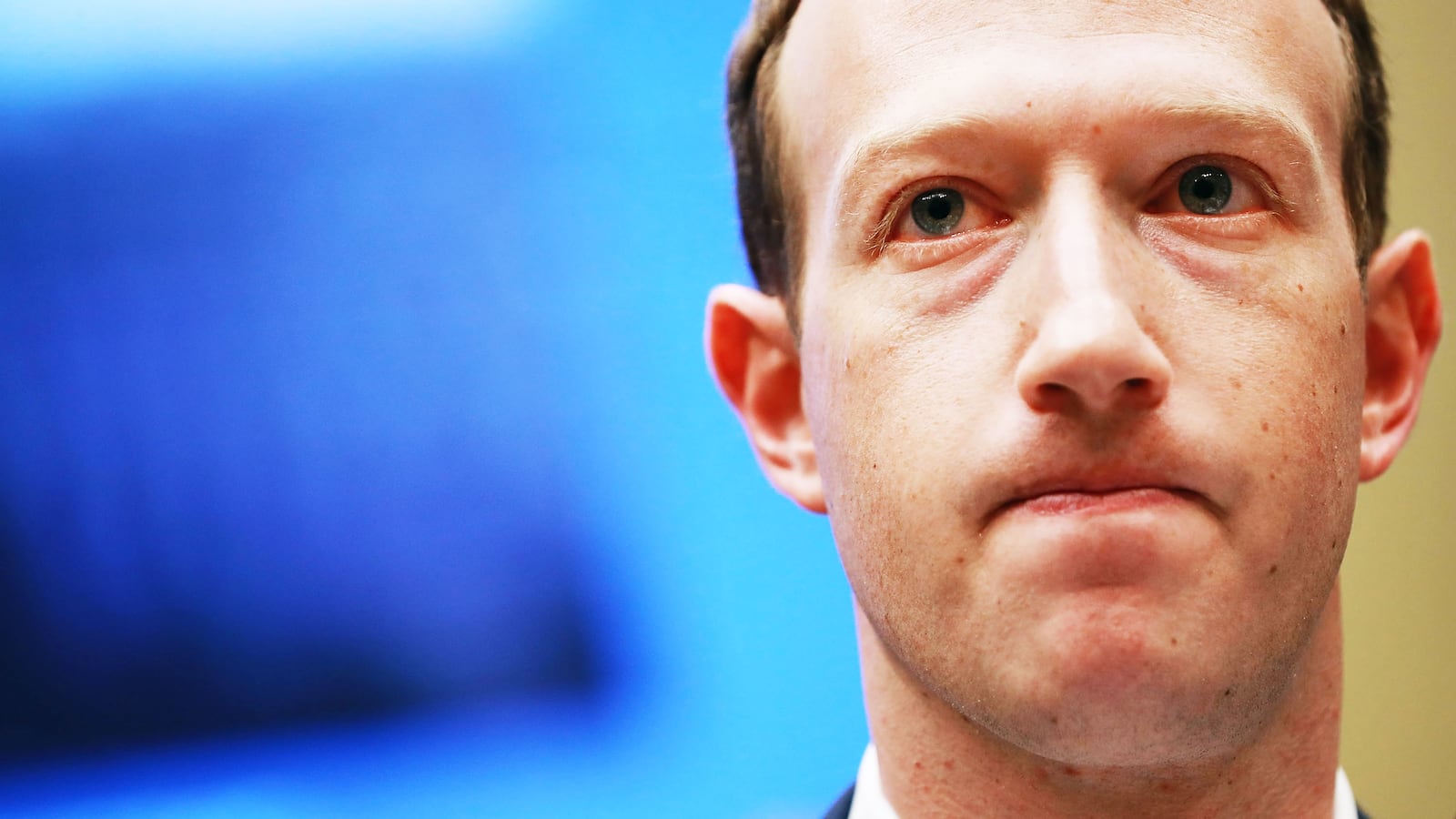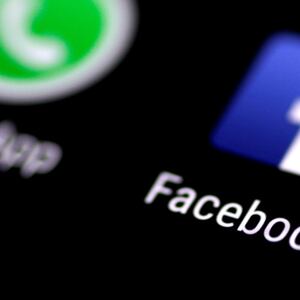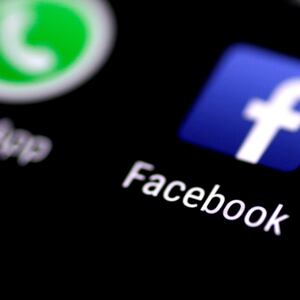Facebook once wanted Americans to associate its platform with presidential elections. Now the company doesn’t seem so sure.
The social networking giant has been notably absent from the first big events of the 2020 presidential primary, a significant contrast from the strategy it employed just four years ago.
The distance appears deliberate, at least for now. According to several people involved with the planning debates for the Democratic primary, Facebook will not be a major participant in the first several events. Neither CNN or MSNBC are currently working with the company for the first debates, and sources at both networks said there are no current plans for a significant role for the platform either.
The DNC itself hasn’t written off digital media partnerships. Indeed, one Democratic source familiar with DNC planning told The Daily Beast the committee has been interested in working with YouTube for at least one debate. Another person familiar with the debate planning process said the DNC has received pitches to host debates from several digital media organizations, including NowThis. A BuzzFeed News source also confirmed to The Daily Beast that the news organization was exploring partnering with Twitter on a Democratic primary debate.
But Facebook has not been a major part of those pitches. And the committee is facing pressure to keep the tech giant at a distance in light of the experience of the last election and growing interest within the party to crack down on Silicon Valley.
“If Facebook is trying to keep a lower profile around the Democratic debates that's probably smart since they've a new data breach every other week and an FTC investigation looming over them,” Eddie Vale, a partner at New Paradigm Strategy Group told The Daily Beast. “But no matter what [Mark] Zuckerberg decides to do, Democrats should be steering clear of their sponsorship entirely while they're continuing to allow foreign interference, misogyny, & hate to spread on their platform.”
Facebook and the DNC declined to discuss matters on the record. But another Democratic operative familiar with the DNC’s thinking said that partnering with Facebook was not a top priority for the committee as it approaches tech companies with much more caution this cycle.
“Generally, the DNC is super-suspicious of the big tech companies this time around, especially with Facebook,” the source said.
The more restrained approach that Facebook is taking to the debates, and the caution exhibited by the DNC, is the latest indication of how the relationship between the tech giant and the major political parties has grown complicated after the 2016 election.
Four years ago, Facebook was enthusiastic in its participation in the debates and major planned political events. The company was a co-sponsor of the first Fox News Republican debates, plastering the blue and white logo prominently on screen next to some of the candidates while they made their arguments. The hosts for the Facebook co-sponsored debates took questions viewers submitted to them over the social network, and during commercial breaks, a correspondent took Facebook Live viewers onto the stage to discuss the debate with the moderators.
Facebook partnered with CNN on another Republican debate as well as an election-themed road-trip leading up to the first Democratic debate in Las Vegas, Nevada. It also allowed CNN access to some of its user data during the 2016 election in order to allow the cable news network to pose more relevant questions during debates.
But its role in the 2016 election ultimately became defined not by its involvement in the debates but, rather, by its platform being hijacked by Russian actors to spread disinformation and by the harvesting of personal information by political entities, including a Trump-allied analytics group.
Though Facebook founder Mark Zuckerberg initially dismissed criticism of the company’s conduct during the 2016 election, he has since acknowledged the need to take more proactive steps so that the platform isn’t used to undermine future elections.
That’s not been sufficient for many Democrats, who have grown critical of Facebook after Russia successfully pushed anti-Clinton memes, disinformation, and embarrassing hacked internal DNC emails on the platform during the 2016 election.
Though Facebook remains extremely valuable for digital outreach, and Democratic candidates continue to invest heavily in advertising over the medium in hopes of reaching voters and building their email lists, several Democratic 2020 presidential candidates have made criticizing tech platforms like Facebook a part of their pitch to primary voters. Sen. Elizabeth Warren (D-MA) has called for breaking up tech companies including Facebook. Sen. Amy Klobuchar (D-MN) carved out a section of her 2020 presidential announcement speech to admonish the big tech companies.
“We need to put some digital rules into law when it comes to people’s privacy,” she said. “For too long the big tech companies have been telling you ‘Don’t worry, we’ve got your back’ while your identities are being stolen and your data is mined.”








